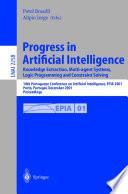
Structures in Logic and Computer Science
A Selection of Essays in Honor of A. Ehrenfeucht
The book summarises contemporary knowledge about the theory of atomic and molecular clusters. New results are discussed on a high theoretical level. Access to this field of research is given by an explanation of the various subjects in introductory chapters.
- ISBN 13 : 9783540632467
- ISBN 10 : 3540632468
- Judul : Structures in Logic and Computer Science
- Sub Judul : A Selection of Essays in Honor of A. Ehrenfeucht
- Pengarang : Jan Mycielski, Grzegorz Rozenberg, Arto Salomaa,
- Kategori : Computers
- Penerbit : Springer Science & Business Media
- Bahasa : en
- Tahun : 1997
- Halaman : 370
- Halaman : 370
- Google Book : http://books.google.co.id/books?id=kuzBD90mVdEC&dq=intitle:logic+algorithm&hl=&source=gbs_api
-
Ketersediaan :
They also gave an O(n log n) time algorithm to find all maximal quasiperiodic
substrings within a given string. Apostolico, Farach and Iliopoulos [4] gave an O(n
) time algorithm that finds the quasiperiod of a given string, namely the shortest
string that covers the string in question. This algorithm was subsequently
simplified and improved by Breslauer [9] who gave an O(n) time on-line algorithm
, and parallelized by Breslauer [10] and Iliopoulos and Park [19], the latter giving
an ...









